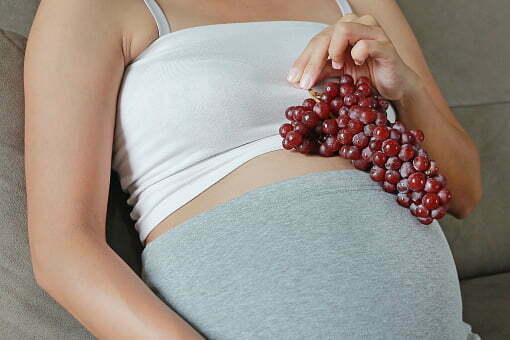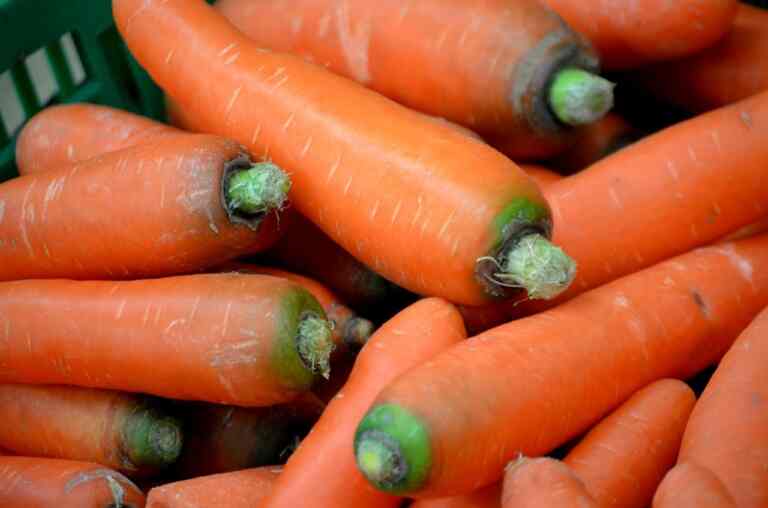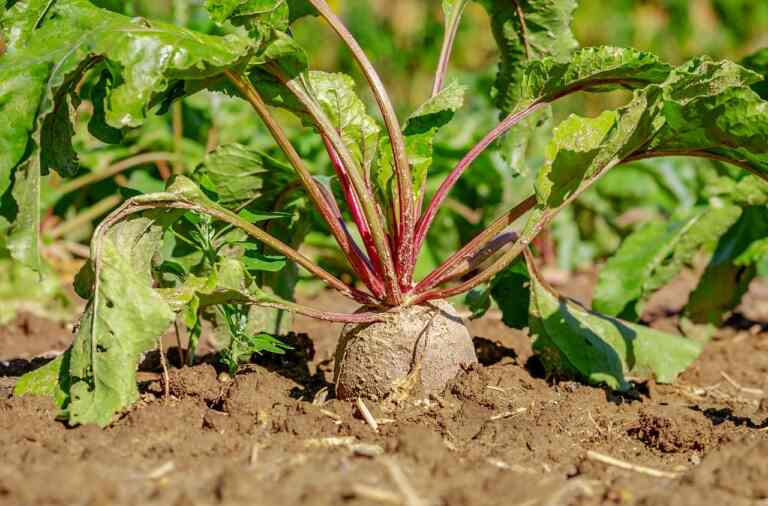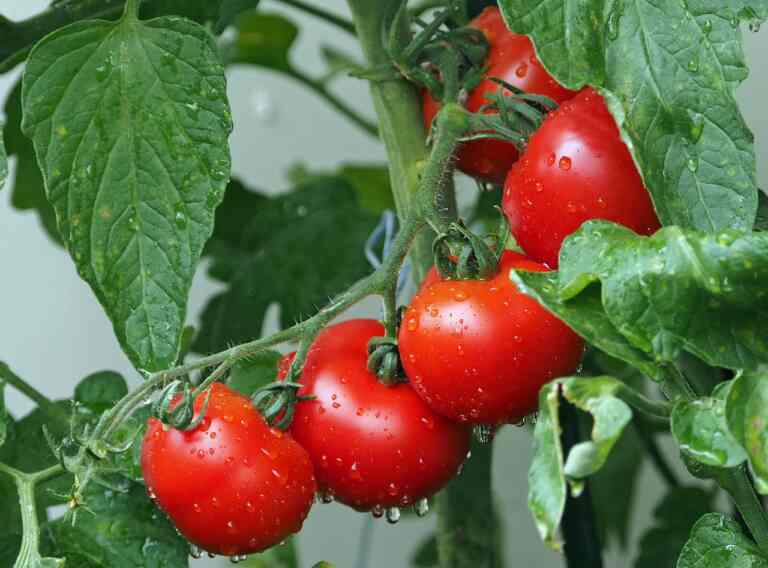Can We Eat Grapes In Pregnancy?
Can we eat grapes in pregnancy? Grapes are a popular and nutritious fruit that are enjoyed by many people around the world. However, when it comes to eating grapes during pregnancy, there are some important considerations to keep in mind. Overall, grapes can be a safe and healthy food choice for pregnant women. Grapes are a good source of vitamins C and K, as well as fiber and antioxidants. These nutrients can help support a healthy pregnancy and fetal development.
However, there are a few things to keep in mind when it comes to eating grapes during pregnancy. One concern is the risk of foodborne illness from consuming grapes that may have been contaminated with harmful bacteria. To minimize this risk, it is important to wash grapes thoroughly before eating them.
Another consideration is the sugar content of grapes. While the natural sugars found in grapes can be a healthy source of energy. Excessive sugar intake can contribute to gestational diabetes or other health concerns during pregnancy. It is recommended that pregnant women consume grapes in moderation, as part of a balanced and varied diet.
Consider These Facts Before Eating Grapes While Pregnant
Grapes are a nutritious fruit that can provide a range of health benefits for pregnant women. However, before consuming grapes during pregnancy. It is important to consider a few important facts to ensure that they are safe and healthy for both the mother and the baby.
- Nutritional Value of Grapes
Grapes are a good source of several key nutrients that are important during pregnancy. They contain vitamin C, which can help support a healthy immune system and collagen production, and vitamin K, which plays a role in blood clotting. It can help promote digestive health, and antioxidants, which can help protect against cellular damage.
- Potential Risks of Eating Grapes While Pregnant
While grapes can be a healthy addition to a pregnancy diet, there are some risks to consider. One of the main concerns is the risk of foodborne illness from consuming grapes. It have been contaminated with harmful bacteria. To minimize this risk, it is important to wash grapes thoroughly before eating them.
- Sugar Content in Grapes
Grapes are naturally sweet and can be a good source of energy during pregnancy. However, excessive sugar intake can contribute to gestational diabetes or other health concerns during pregnancy. It is important to consume grapes in moderation, as part of a balanced and varied diet.
The Benefits and Risks of Eating Grapes During Pregnancy
Grapes are a popular and nutritious fruit that are enjoyed by many people around the world. However, when it comes to eating grapes during pregnancy, there are some benefits and risks to consider.
- Nutritional Value: Grapes are a good source of several key nutrients that are important during pregnancy. They contain vitamin C, which can help support a healthy immune system and collagen production, and vitamin K. Which plays a role in blood clotting. Grapes are also high in fiber, which can help promote digestive health, and antioxidants. It can help protect against cellular damage.
- Hydration: Grapes are also high in water content, which can help keep the body hydrated during pregnancy. This is particularly important as dehydration can lead to a range of health concerns, including constipation and urinary tract infections.
- Energy Boost: The natural sugars found in grapes can be a healthy source of energy during pregnancy. This can help combat fatigue and promote overall wellbeing.
Risks of Eating Grapes During Pregnancy
- Foodborne Illness: One of the main concerns of consuming grapes during pregnancy is the risk of foodborne illness from consuming grapes that may have been contaminated with harmful bacteria. To minimize this risk, it is important to wash grapes thoroughly before eating them.
- Sugar Content: While the natural sugars found in grapes can be a healthy source of energy, excessive sugar intake can contribute to gestational diabetes. It is recommended that pregnant women consume grapes in moderation, as part of a balanced and varied diet.
- Allergic Reactions: Some women may experience allergic reactions to grapes or other fruits during pregnancy. If you experience any symptoms of an allergic reaction, such as hives or difficulty breathing. It is important to seek medical attention right away.
- Grape Juice: While fresh grapes can be a healthy snack, grape juice may not be the best choice for pregnant women. Many grape juices are high in added sugars and may not provide the same nutritional benefits as fresh grapes. It is important to read labels carefully and choose juices that are low in added sugars.

Is Eating Grapes During Pregnancy a Good Idea?
Eating grapes during pregnancy can be a good idea, as they are a nutritious fruit that can provide a range of health benefits for both the mother and the developing baby. Grapes are a good source of vitamins and minerals, including vitamin C, vitamin K, fiber, and antioxidants, which can help support a healthy immune system, promote digestive health, and protect against cellular damage.
However, it is important to consider the potential risks of consuming grapes during pregnancy. One of the main concerns is the risk of foodborne illness from consuming grapes that may have been contaminated with harmful bacteria. To minimize this risk, it is important to wash grapes thoroughly before eating them. It is also important to consume grapes in moderation, as excessive sugar intake can contribute to gestational diabetes or other health concerns during pregnancy.
A Guide to Eating Grapes Safely During Your Pregnancy
If you’re pregnant and considering eating grapes, it’s important to follow certain guidelines to ensure that you do so safely. Here is a guide to help you enjoy grapes without putting your health or the health of your baby at risk.
If you have any questions or concerns about consuming grapes during pregnancy, it is important to discuss them with your healthcare provider. They can provide personalized advice based on your individual health needs and circumstances. Ultimately, as long as you consume grapes in moderation and take appropriate precautions to minimize any potential risks, they can be a healthy and nutritious addition to a pregnancy diet.
- Choose high-quality grapes. When selecting grapes, look for those that are fresh, firm, and free of bruises or cuts. Avoid grapes that appear shriveled or discolored.
- Wash grapes thoroughly. Before consuming grapes, it’s essential to wash them thoroughly under cold running water to remove any bacteria, pesticides, or dirt that may be present on their skin. Even if the grapes have been prewashed, it’s still a good idea to rinse them again.
- Avoid eating grapes that have been stored for too long. Grapes are best when consumed fresh. If they’ve been stored for an extended period, there is a risk that they may have become contaminated with harmful bacteria.
In summary, eating grapes during pregnancy can be a safe and healthy choice if you take appropriate precautions. By choosing high-quality grapes, washing them thoroughly, consuming them in moderation, and consulting your healthcare provider if you have any concerns, you can enjoy this nutritious fruit as part of a balanced pregnancy diet.
Conclusion
In conclusion, eating grapes during pregnancy can be a safe and healthy choice when done in moderation and with proper precautions. Grapes are a good source of nutrients, including vitamins, minerals, fiber, and antioxidants, which can provide numerous health benefits for both the mother and developing baby.
However, it’s important to be aware of the potential risks associated with consuming grapes during pregnancy, such as the risk of foodborne illness, excessive sugar intake, and the risk of gestational diabetes. To minimize these risks, it’s essential to choose high-quality grapes, wash them thoroughly, consume them in moderation, and consult with your healthcare provider if you have any concerns.
Ultimately, if you take the necessary precautions and consume grapes in moderation, they can be a nutritious and safe addition to a healthy pregnancy diet.
Related Posts
This article is reviewed by Russel, before publishing. If you have any doubt, you can contact us or consult with your nearby doctor. Remember, in medical matters, there is no same advice, cure, and medicine for all.







